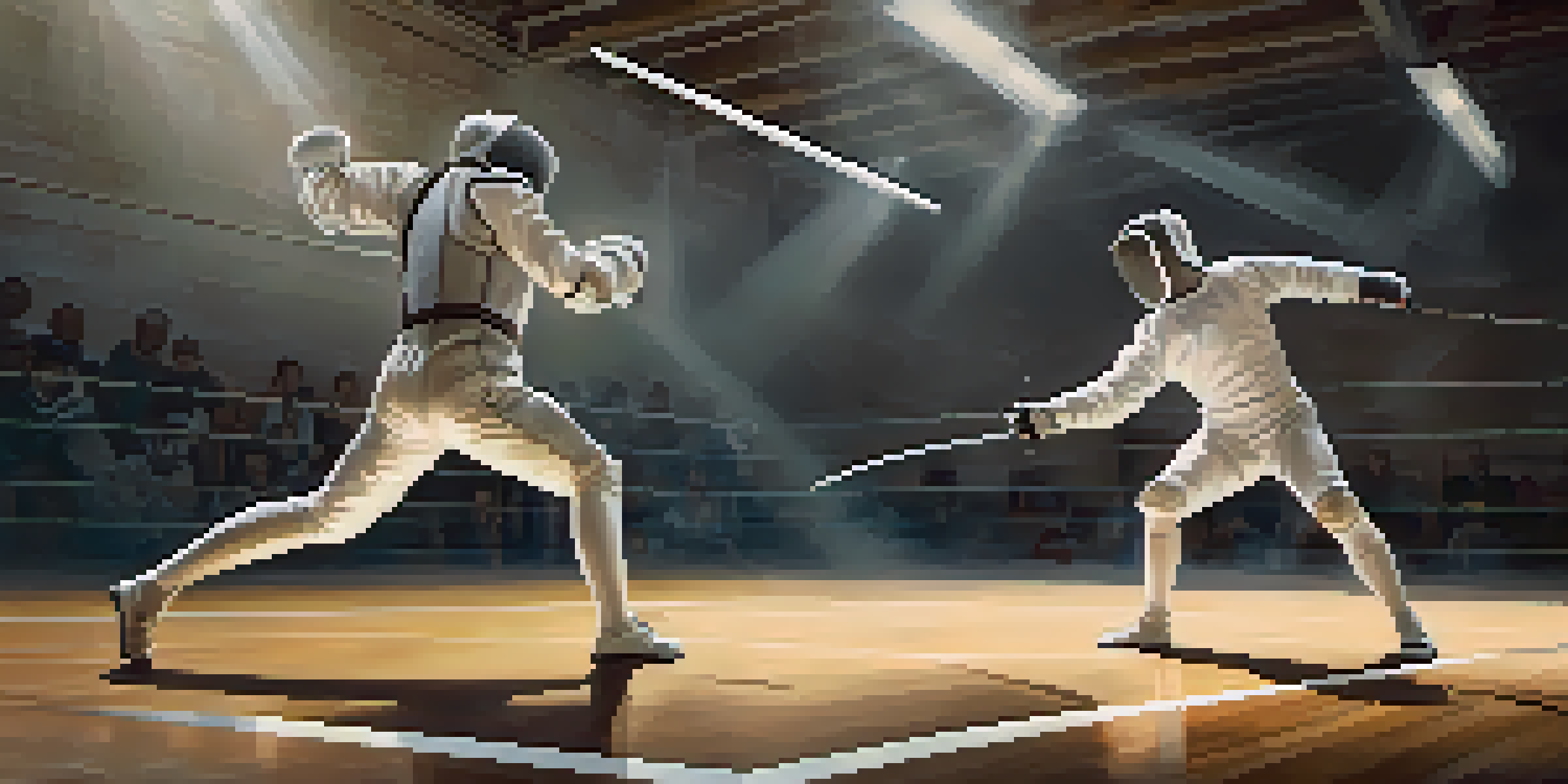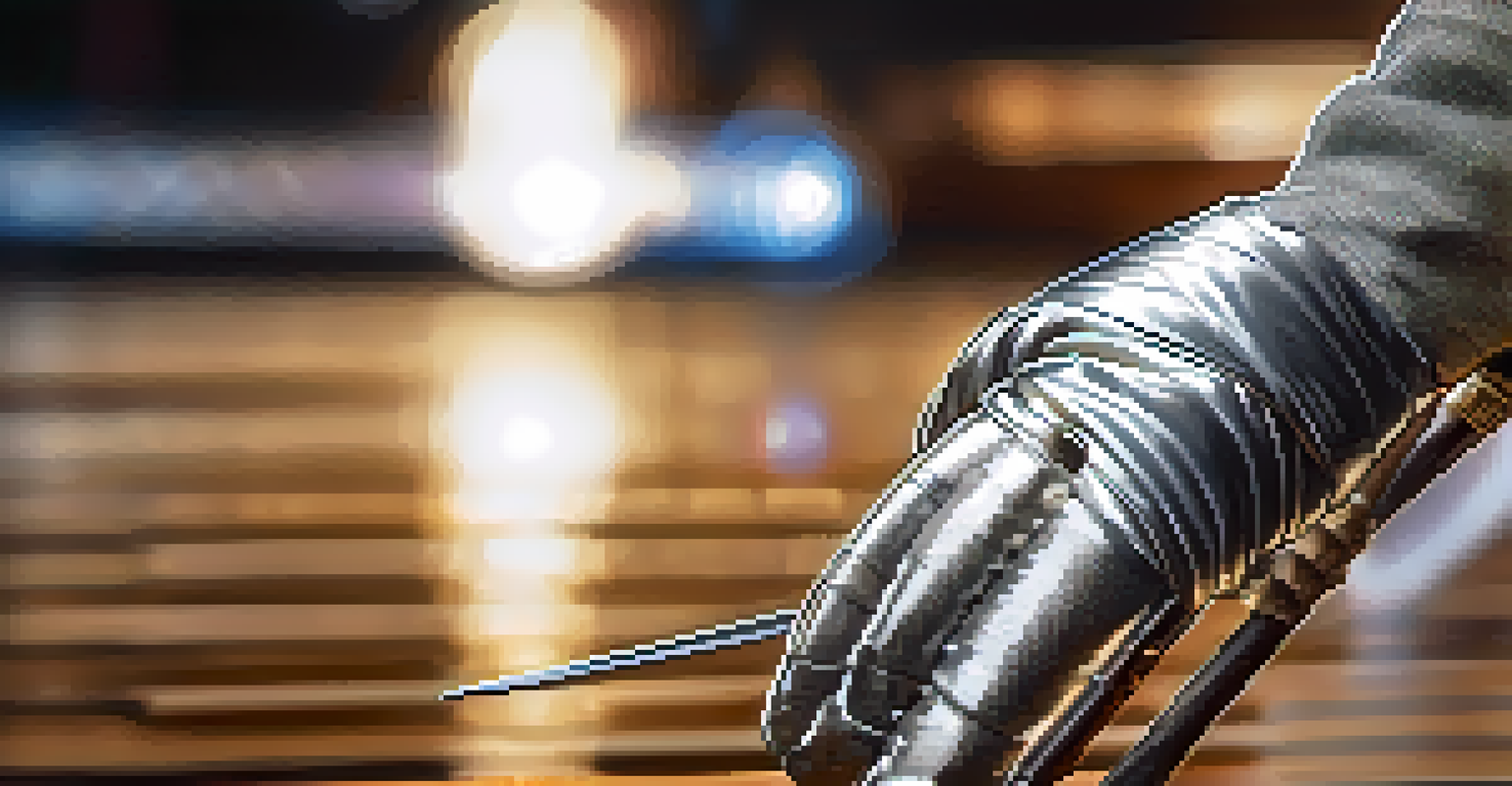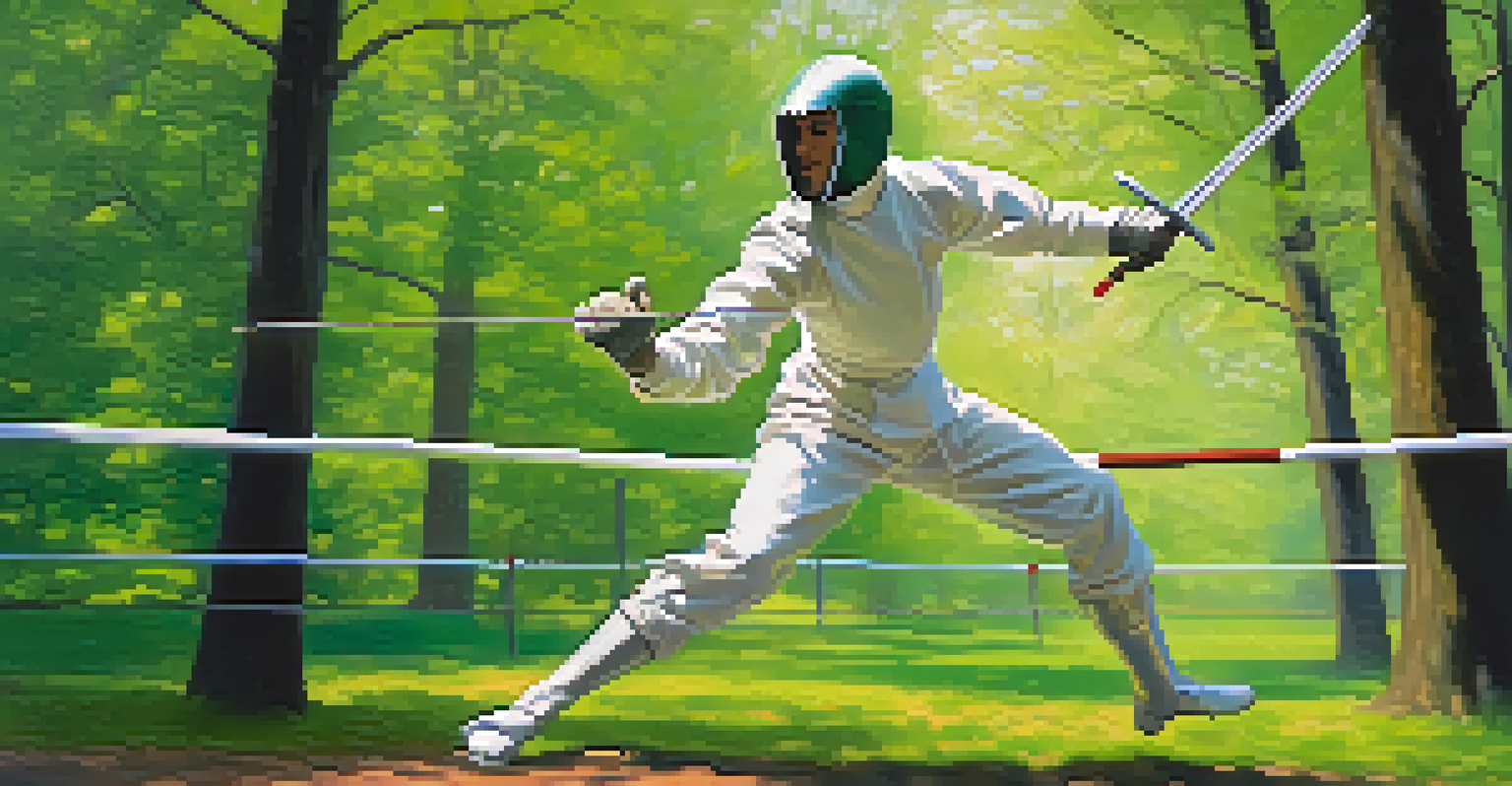The Role of Reflexes in Fencing: Quick Reactions Matter

What Are Reflexes and Why Are They Important in Fencing?
Reflexes are involuntary responses to stimuli, essential in many sports, including fencing. In fencing, a quick reaction time can mean the difference between a successful attack and a failed one. The ability to respond rapidly to an opponent's moves allows fencers to maintain an advantage during bouts.
The key to success is often the ability to react quickly and effectively to changing circumstances.
For instance, when an opponent lunges forward, a fencer's reflexes kick in, triggering an immediate defensive maneuver. This rapid response is often instinctual, honed through practice and repetition. Understanding the role of reflexes is crucial for anyone looking to excel in fencing.
Moreover, reflexes are not just about speed; they involve evaluating the situation and making split-second decisions. This combination of quick reactions and strategic thinking is what sets successful fencers apart.
The Science Behind Reflex Actions in Sports
Reflex actions occur through complex pathways in the nervous system, allowing for fast responses without conscious thought. In fencing, these pathways are trained to react to specific movements and cues from an opponent. This neurological efficiency is why elite fencers can respond almost instantaneously.

Understanding this science can help fencers appreciate the importance of training their reflexes. Techniques such as drill repetition can enhance these neural pathways, leading to quicker reactions in real match scenarios. The more a fencer practices, the more their body learns to react swiftly.
Reflexes Are Key in Fencing Success
Quick reflexes enable fencers to respond effectively to opponents, making them crucial for successful offensive and defensive maneuvers.
Additionally, training drills that focus on reaction time can significantly improve performance. For example, using a partner to simulate various attacks helps fencers develop reflexive responses to different situations.
How Reflexes Impact Defensive Strategies in Fencing
Defensive strategies in fencing heavily rely on a fencer's ability to react quickly. When an opponent executes an attack, a well-timed parry or dodge can prevent a hit. A fencer’s reflexes enable them to execute these defensive maneuvers almost instinctively.
In fencing, as in life, it’s not just about the speed of your response, but the quality of your reactions that makes all the difference.
Take, for example, the concept of 'distance management.' Fencers must quickly gauge their distance from an opponent and react accordingly. This requires not only quick reflexes but also a keen understanding of timing and spatial awareness.
Ultimately, mastering defensive reflexes can lead to more effective counter-attacks. A fencer who can swiftly evade and then strike back creates a dynamic flow in a match, keeping the opponent on their toes.
Training Techniques to Improve Reflexes in Fencers
To enhance reflexes, fencers can engage in various training techniques that promote quick reactions. One effective method is to incorporate agility drills into practice sessions. These drills, which may include ladder exercises or cone sprints, can improve overall speed and coordination.
Another valuable technique is partner drills that simulate real match scenarios. By practicing with a partner, fencers can develop their ability to react dynamically to different attacks and movements. This not only builds muscle memory but also conditions the mind to respond quickly.
Training Enhances Reflex Responses
Engaging in specific drills and exercises can significantly improve a fencer's reaction time and overall performance in matches.
Lastly, incorporating reaction training tools, such as light signals or reaction balls, can add an element of fun while improving reflexes. These tools challenge fencers to react to unexpected stimuli, effectively sharpening their response times.
The Role of Mental Focus in Enhancing Reflexes
Mental focus is a critical component in improving reflex responses during fencing matches. A distracted mind can slow down reactions, causing missed opportunities. By practicing mindfulness techniques, fencers can enhance their concentration and sharpen their reflexes.
Visualization is another powerful tool. By mentally rehearsing scenarios and moves, fencers can prepare their minds and bodies for quick responses. This mental preparation helps create a sense of familiarity, which can translate into faster reflexes when it matters most.
Additionally, managing stress and anxiety through breathing exercises can help maintain a clear mind during matches. When a fencer is calm and focused, they are more likely to react quickly and effectively to their opponent's actions.
The Connection Between Experience and Reflexes in Fencing
Experience plays a significant role in developing reflexes in fencing. Seasoned fencers have often encountered a variety of opponents and styles, allowing them to refine their reactions over time. This accumulated knowledge serves as a valuable resource during matches.
As fencers gain experience, they learn to anticipate their opponent's moves, which enhances their ability to react quickly. This anticipatory skill is a hallmark of advanced fencers and can often be seen in their fluid and confident movements during bouts.
Experience Sharpens Fencing Reflexes
As fencers gain experience, they develop better anticipation and awareness, enhancing their ability to react quickly to various attacks.
Moreover, with experience comes a better understanding of one's own strengths and weaknesses. This self-awareness allows fencers to tailor their training to improve specific areas, including their reflexes, ultimately leading to better performance in competitions.
Conclusion: The Essential Role of Reflexes in Fencing Success
In conclusion, reflexes play an indispensable role in the sport of fencing. Quick reactions can determine the outcome of a match, influencing both defensive and offensive strategies. Fencers who prioritize reflex training will likely see improvements in their overall performance.
By understanding the science behind reflexes and incorporating targeted training techniques, fencers can enhance their skills significantly. Additionally, cultivating mental focus and drawing on experience are crucial components in this journey.

Ultimately, honing reflexes is about more than just speed; it's about developing a complete fencing strategy. With practice and dedication, fencers can ensure that their quick reactions become a powerful asset in their competitive arsenal.